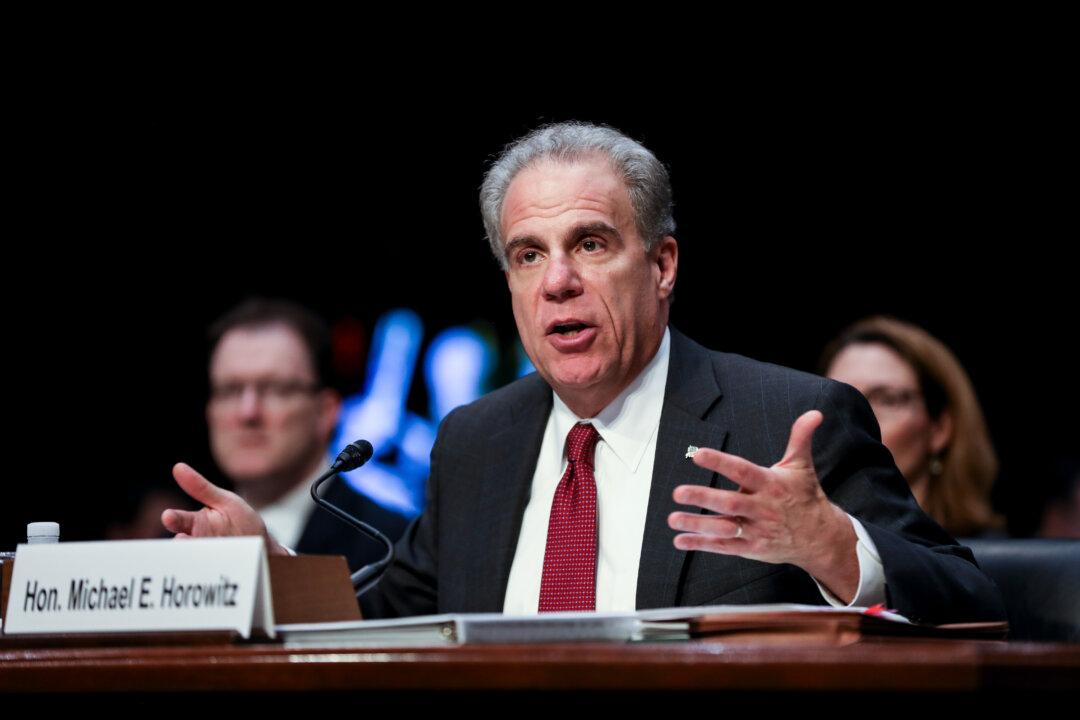Department of Justice Inspector General Michael Horowitz told Senate lawmakers on Dec. 11 that the FBI’s applications to surveil a Trump campaign associate included significant errors that implicated the bureau’s entire chain of command in serious performance failures.
Horowitz appeared before the Senate Judiciary Committee two days after releasing a voluminous report examining the FBI’s applications for Foreign Intelligence Surveillance Act (FISA) warrants to surveil Carter Page, the Trump 2016 campaign associate. The report found that the initial application and the three renewal applications included 17 significant errors, several of which resulted from the FBI withholding evidence that would have harmed the chances of obtaining the warrants.





